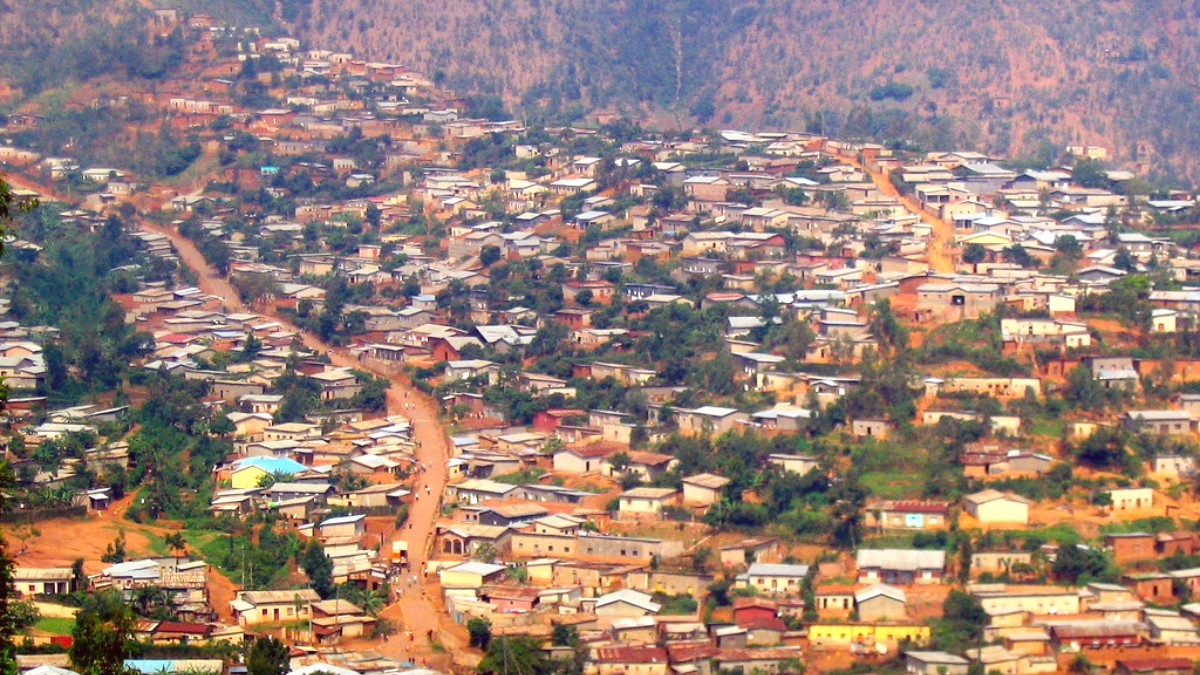
Rwanda
Kigali experiences a tropical highland climate. Temperatures remain mild year-round due to high altitude, typically between 18°C and 27°C (64°F and 81°F). Rainfall, however, varies significantly.
Two distinct rainy seasons and two dry seasons mark Kigali's climate patterns. This influences weather, landscape, and travel conditions.
Kigali's climate is generally temperate. Heavy rainfall, though often short-lived, might cause localized flooding in low-lying areas, clearing quickly. Rwanda is in a seismically active zone (East African Rift Valley), so minor tremors occur. Extreme temperatures are rare.
Paying attention to local weather forecasts during your visit is prudent.
June - September, December - February
Ideal weather for outdoor activities, clear skies. Excellent for wildlife viewing.
Higher prices for flights and accommodation. More tourists at popular attractions.
March, October, November
Fewer tourists, lower prices. Lush green landscapes. Brief rain showers.
More frequent rain showers, requiring appropriate gear. Some unpaved roads outside Kigali might turn muddy.
April - May
Lowest prices for flights and accommodation. Very few tourists, for an intimate cultural immersion.
Frequent, sometimes heavy rain. Rural unpaved roads potentially difficult. All-day rain is uncommon.
Kigali welcomes visitors year-round. Dry seasons (June-September, December-February) for extensive walking tours and market visits. Rainy seasons bring freshness and green vibrancy, appealing for cultural immersion without crowds.
Outdoor activities Mount Kigali hikes during dry seasons. Paths are clearer, views better. Indoor memorial sites for any time of year. Gorilla and chimpanzee trekking (outside Kigali) generally preferred during dry seasons due to drier trails.
Comfortable in dry seasons; fresh and less crowded in rainy seasons.
Dry seasons for clear paths and views.
Suitable all year.
Dry seasons favor drier, less slippery trails.
Wildlife viewing excellent in dry seasons as animals gather at water sources.
Rwanda has a welcoming visa policy, making travel accessible for many nationalities.
Rwanda offers various entry options depending on your nationality.
Regardless of visa type, prepare these documents for entry.
Rwanda uses the Rwandan Franc (RWF). Knowing approximate costs supports effective budget plans.
Kigali has a reputation as one of Africa's safest cities. Awareness and preparation are still important.
Valid certificate for travelers 9 months+ from risk countries, or transiting for >12 hours.
Typhoid especially for eating outside major restaurants or rural areas.
Rabies if extended outdoor time with animals. Ensure routine vaccinations (MMR, DTaP) are current.
Malaria is present; lower risk in Kigali's high altitude, but protection is advised.
Take anti-malarial medication. Use Insect repellent containing DEET. Sleep under a Mosquito net if no screened windows or AC. Traveler's diarrhea is common. Practice strict food and water hygiene. Drink only bottled water or purified water. Avoid tap water, ice cubes. Carry Anti-diarrhea medication (like Loperamide) and ORS.
Schistosomiasis risk exists in freshwater bodies; avoid swimming in non-chlorinated freshwaters.
Access to healthcare: King Faisal Hospital (private, highly regarded, English-speaking staff). University Teaching Hospital of Kigali (CHUK) is public. Pharmacies are widely available. Emergency services: Police/General 112, Traffic Police 113, Ambulance 912, Fire 111.
Tap water in Kigali is generally not for direct consumption. Stick to bottled water (check unbroken seal) for drinking, brushing teeth, making ice.
Consider carrying a Portable water filter (e.g., LifeStraw) or purification tablets, especially outside urban areas, to lessen plastic waste.
Exercise caution with food, especially street vendors. Choose places with high turnover, where food is hot. Wash hands frequently.
Kigali is one of Africa's safest cities. Crime rates are low, and violent crime against tourists is rare.
Purchasing comprehensive travel insurance holds high recommendation for your trip to Kigali and Rwanda.
Look for policies covering medical emergencies, hospitalization, and doctor visits. World Nomads offers flexible policies.
Emergency evacuation coverage to a higher standard facility or home country. Trip cancellation/interruption for unforeseen circumstances. SafetyWing and Insubuy are options.
Coverage for lost/delayed luggage and personal belongings. Confirm policy covers planned adventure activities like gorilla trekking. AirHelp for flight compensation.